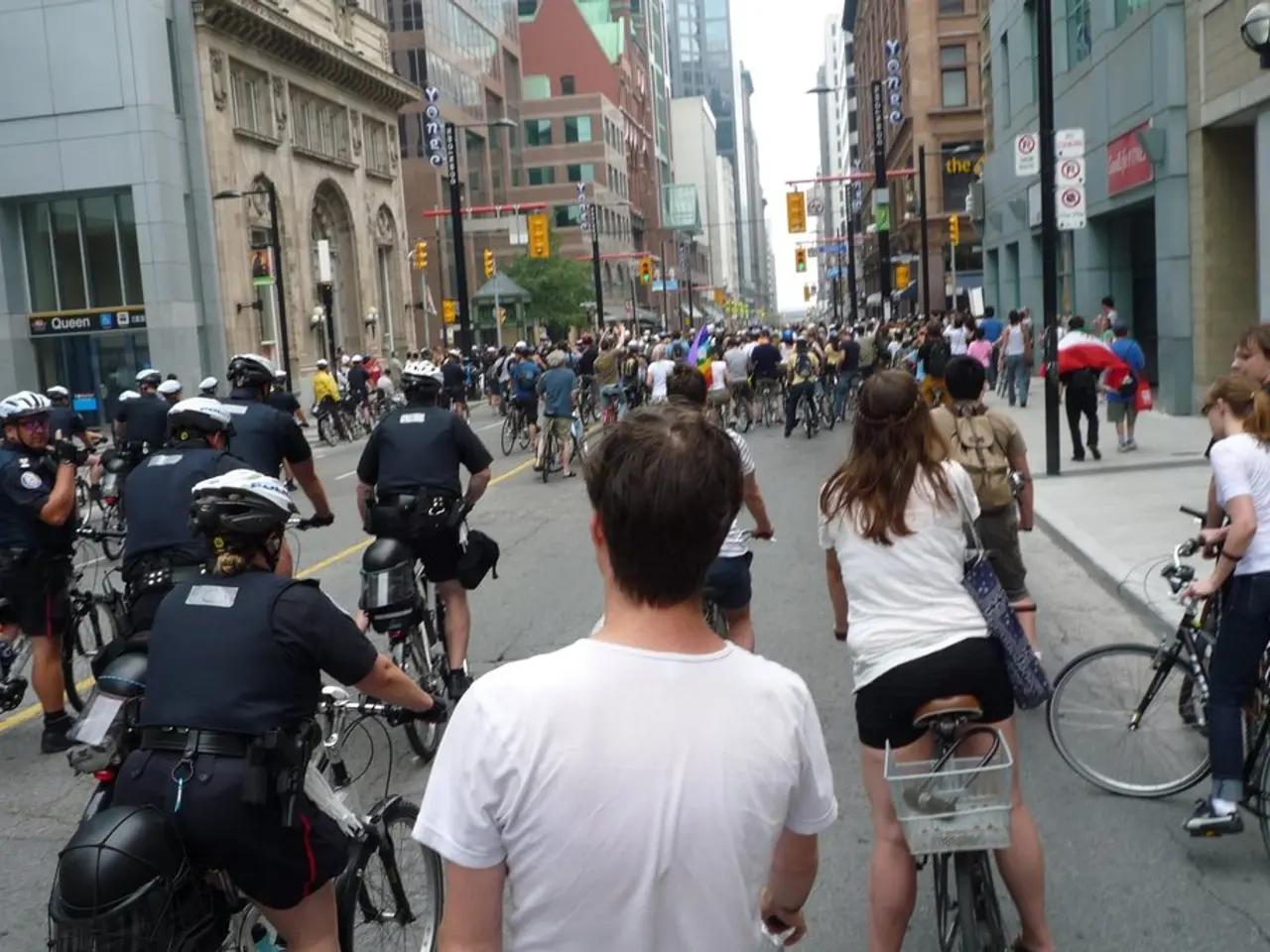Riding through the City: Cyclists Assess Berlin's Infrastructure and Safety Issues
Bicyclists rate Berlin negatively - Berlin Cycling Assessment Scores Negatively
Berlin lags behind other major cities in the ADFC bike-friendliness survey, slipping three spots in the latest ranking of cities with over 500,000 inhabitants. With a score of 4.3, the German capital finds itself trailing Frankfurt am Main, Hannover, and Bremen, the top three cities in Germany, who average around 3.5.
In this year's survey, conducted from September 1, 2024, to November 30, 2024, over 200,000 cyclists across Germany participated. In Berlin, around 7,500 cyclists graded various aspects, including cycling safety. A staggering 88% of respondents felt unsafe cycling in the city, and 92% reported frequent conflicts with car traffic.
A closer look at Brandenburg reveals that several cities outperform Berlin. Potsdam, the state capital, ranks 11th out of 42 cities with 100,000 to 200,000 inhabitants, scoring 3.8. Brandenburg an der Havel (4.0) ranks 56th out of 113 cities with 50,000 to 100,000 inhabitants, while Schwedt in Uckermark district (2.9) places 5th out of 245 cities with 20,000 to 50,000 inhabitants.
Several cities on the outskirts of Berlin also scored higher than the capital in the same size category. Hennigsdorf, Oranienburg, Strausberg, Kleinmachnow, and Teltow all received better grades, highlighting the capital's need to improve its cycling infrastructure and safety.
ADFC, Germany's General Bicycle Club, criticizes Berlin's traffic policy for the city's poor ranking, stating that changes are necessary to halt the negative trend. The survey demonstrates a link between funding cuts for cycling promotion and declining satisfaction among cyclists.
While the survey aimed to gather responses from a broad cross-section of cyclists, advocacy groups like Kidical Mass and the presence of cycling networks in Berlin show that the demand for improved cycling conditions remains strong. Public activism focuses on creating safer streets for children and families, indicating a disconnect between current traffic policies and the need for a more inclusive, cycle-friendly cityscape.
Berlin, an influential city, faces significant challenges in its cycling infrastructure and traffic environment compared to other leading German cities. Despite its status as a hub for cyclists, the city still has work to do to catch up to cities investing more in child-friendly and safer cycling infrastructure.[2]
- The industry of bicycle manufacturing and advocacy groups, such as ADFC and Kidical Mass, are calling for changes in Berlin's community policy to improve its cycling infrastructure and safety, as the city's employment policy in this area lags behind other major cities.
- A more inclusive, cycle-friendly cityscape is being encouraged through public activism, as the demand for improved cycling conditions remains strong in the finance, transportation, and sports sectors, particularly among families, in Berlin.




